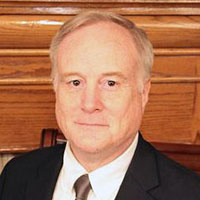 Hackett Wills & Probate Lawyers, Arkansas
Hackett Wills & Probate Lawyers, Arkansas
Includes: Estate Administration, Living Wills, Wills
Sponsored Lawyers
1-4 of 4 matches
Business, Lawsuit & Dispute, Accident & Injury, Estate, Wills & Probate
Mr. Carson's practice includes personal injury, insurance, commercial, oil and gas, worker's compensation defense, and employment litigation. He also handles commercial transactions. He has represented parties in federal and state courts, workers' compensation and EEOC proceedings, and mediations. He has been the Director of Legal Writing and Appellate Advocacy at the Univ. of Arkansas School of Law. He has been a frequent presenter at professional seminars. Fellow Arkansas attorneys selected him as a Mid-South Super Lawyer, an honor limited to five percent of the attorneys in a state.
(more)




